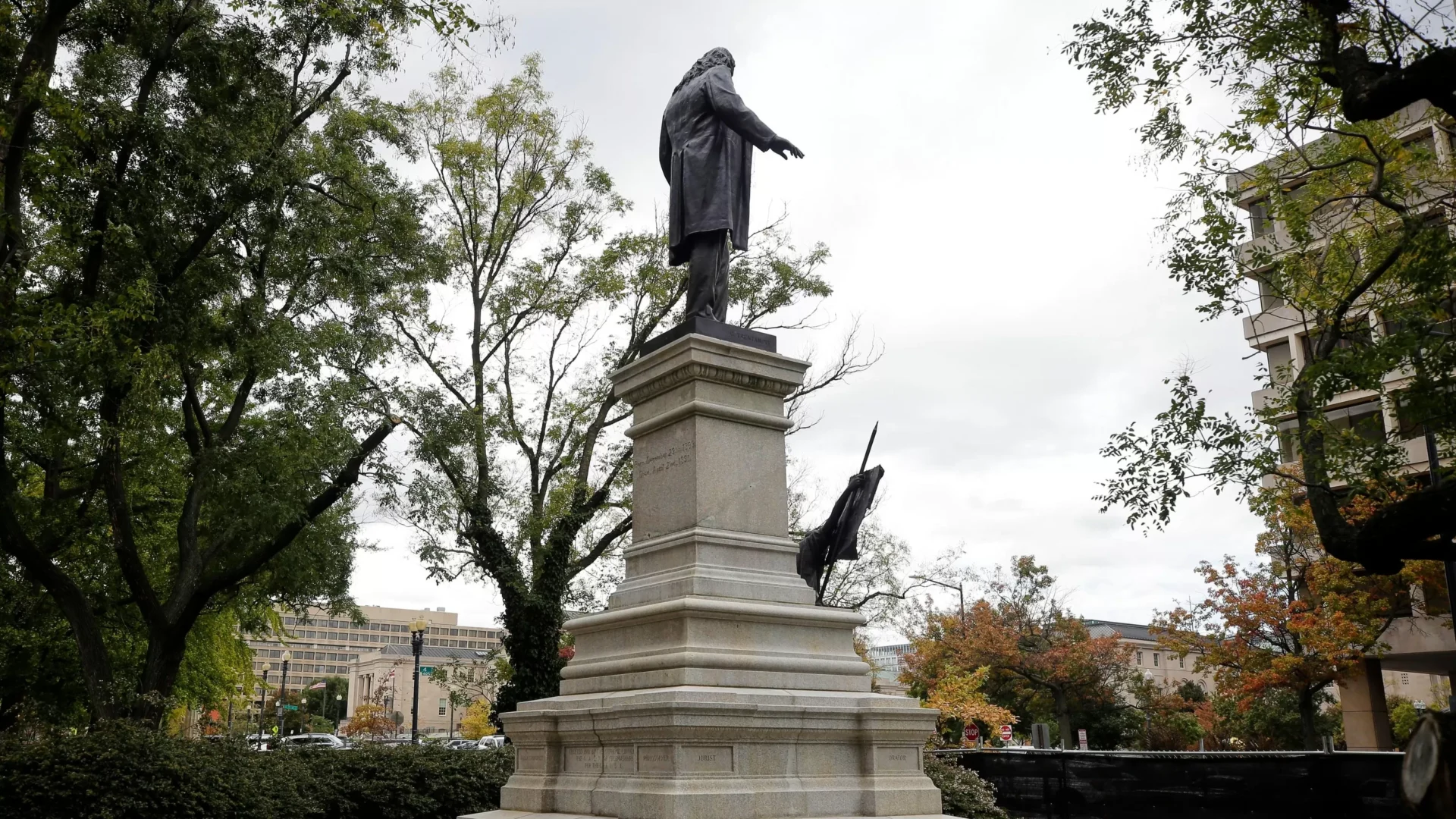The Trump administration has recently restored a memorial to Confederate General Albert Pike in Washington, D.C. This decision has sparked controversy and debate, as the memorial was taken down by demonstrators during the racial justice protests that took place in the summer of 2020. While some may see this as a step backwards, others believe that this restoration is a necessary move towards preserving our nation’s history.
The memorial in question was a statue of Confederate General Albert Pike, which stood in Judiciary Square in Washington, D.C. for over 100 years. Pike was a prominent figure in the Confederate Army during the Civil War and was also known for his involvement in the Freemason society. The statue was erected in 1901 by the Freemasons to honor Pike’s contributions to their organization.
However, in the wake of the racial justice protests that swept the nation in the summer of 2020, the statue was taken down by demonstrators. This was a result of the growing awareness and condemnation of symbols that represent the Confederacy and its ideals of slavery and racism. The removal of the statue was seen as a powerful statement against the glorification of the Confederacy and its leaders.
But now, with the restoration of the memorial, the Trump administration has once again brought the statue of Albert Pike back to its original location. This move has been met with mixed reactions, with some praising the restoration as a sign of respect for our nation’s history, while others view it as a disregard for the progress made towards racial equality.
The restoration of the memorial has been defended by the Trump administration as a way to preserve our nation’s history. In a statement, the National Park Service, which oversees the statue, stated that the restoration was in accordance with the National Historic Preservation Act, which requires the preservation of historic landmarks. They also mentioned that the statue is a tribute to Pike’s role in the development of Washington, D.C.
Furthermore, supporters of the restoration argue that removing the statue erases an important part of our nation’s past. As controversial as Pike may be, he was still a significant figure in American history and played a role in shaping our nation’s capital. By removing the statue, we risk losing a part of our history, both good and bad. The restoration of the memorial serves as a reminder of our past, and allows for a more complete understanding of our nation’s journey towards progress.
On the other hand, opponents of the restoration argue that the statue glorifies a man who fought for the Confederacy and its ideals of slavery and racism. They believe that the statue represents a dark and painful time in our nation’s history and should not be celebrated. The restoration of the memorial is seen as a step backwards, especially in light of the efforts made towards racial justice and equality.
However, it is important to note that the restoration of the memorial does not mean that the issues surrounding the Confederacy and its symbols are being ignored. The Trump administration has also announced plans to create a new monument that will recognize the contributions of African Americans to the country. This initiative, along with the restoration of the memorial, shows that the administration is taking steps towards acknowledging and honoring all aspects of our nation’s history.
In conclusion, the restoration of the memorial to Confederate General Albert Pike in Washington, D.C. has sparked a heated debate. While some see it as a necessary move towards preserving our nation’s history, others view it as a disregard for the progress towards racial justice. However, it is important to remember that the restoration does not erase the efforts made towards equality, but rather serves as a reminder of our past. As a nation, we must continue to have open and honest discussions about our history, and work towards a more inclusive future.

